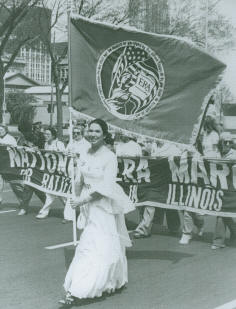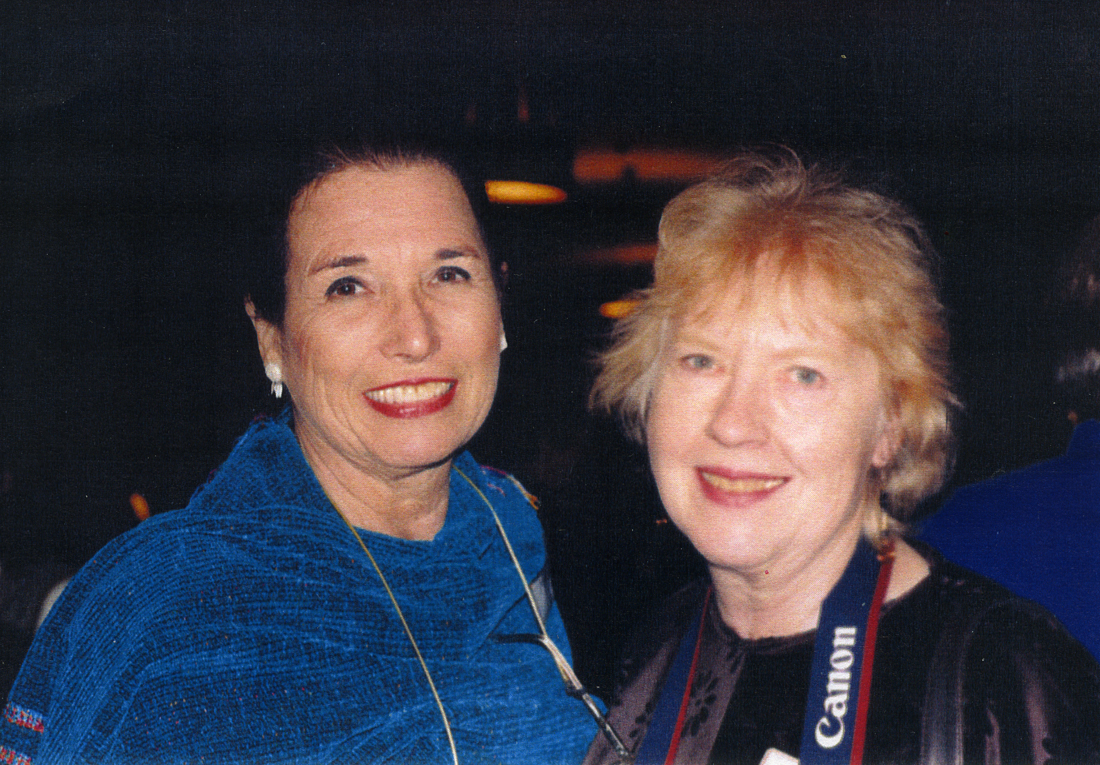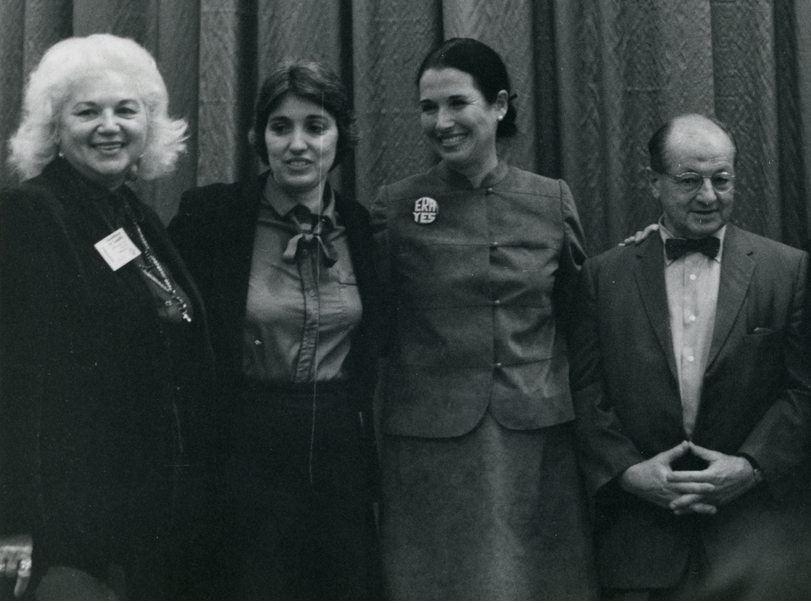|
|
|
||||
Muriel fox |
|||||
BIOGRAPHY |
Click on Photo for Audio and Text |
||||
|
Back Interviews Next |
Muriel Fox, Alumna of Rollins, is well known as the co-founder of the National Organization for Women (NOW), chair of Veteran Feminists of America, and ambassador for the women’s movement. She remains an active force in the feminist movement as an organizer, speaker, writer, and editor. Fox grew up in Newark, New Jersey, and received her secondary education at Philip Roth Weequahic High School. Her family relocated to Miami Beach, where Rollins College granted Fox a full scholarship. While at Rollins, Fox took an active role in the academic affairs of the campus. She participated in Hamilton Holt’s honors course on the atomic bomb, was on the Sandspur committee, and worked as a string correspondent for the United Press, covering events such as the 1946 Conference on the Atomic Bomb and World Government. After transferring to Bernard College in New York City to complete her undergraduate degree in American Studies, Fox became a copy writer for Sears Roebuck. Soon after, Fox moved to Miami, where she headed the Dade County re-election campaign of U.S. Senator Claude Pepper and helped elect Miami Mayor William Wolfarth. Fox sought to further her career by applying to the world’s largest public relations agency, Carl Buyer and Associates, only to be told, “We don’t hire women writers.” Nevertheless, she persisted and by 1956, became the youngest vice president of the company. Following her promotion, Fox was told she had progressed as far as possible; this prompted her to help co-found NOW, an organization that changed the business climate for women. Fox maintained an active role in the political movement towards equality. For her dedication towards the cause, the NOW Legal Defense and Education Fund created the Foxy Award, and recognized Muriel Fox as its first recipient. Fox was also the first recipient of New York State’s Eleanor Roosevelt Award, the first woman to receive the “Business of the Year” award, and is cited in several literary sources, including Who’s Who in the World and Feminists Who Changed America. |
|
|
||
|
|
|||||
|
|
|||||
|
|
|||||
|
|
|||||





